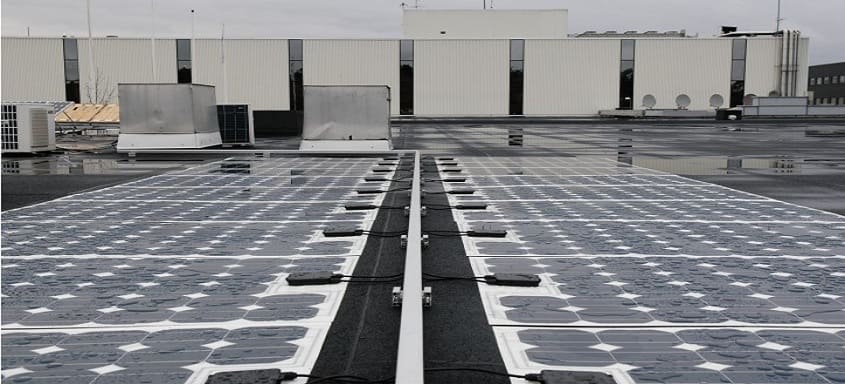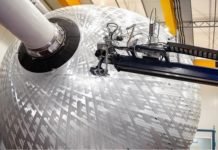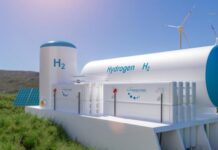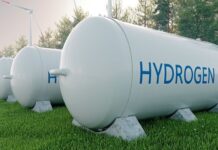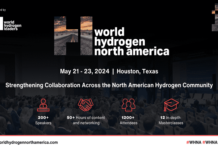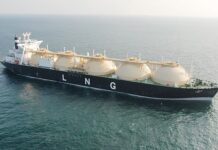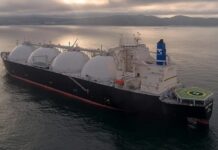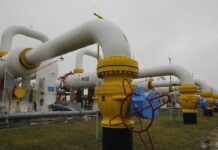Sustainability is an ongoing journey at ExxonMobil. Our employees are committed to innovation and continuous improvement.
In both our Downstream and Chemical businesses, we have sustainability steering teams that meet regularly to drive our longer-term vision into multiyear strategic plans to improve our own operations, as well as provide sustainability benefits, such as increasing efficiency and reducing waste, for the entire value chain. We have the ability to make a sizable positive impact on society. Our products help customers and consumers conserve energy and reduce raw material use, which in turn can help reduce costs and lower greenhouse gas (GHG) emissions around the world.
Chemical product benefits
Among the many product offerings in our Chemical business, our materials used in automotive applications provide manufacturers and consumers with quantifiable benefits. For example, we manufacture butyl rubber – invented by ExxonMobil researchers in 1937 – which is utilized to produce tire innerliners. This material helps maintain optimal tire air pressure, which in turn contributes to improved vehicle fuel economy, tire durability and performance. Our next-generation tire innerliner materials have the potential to deliver further leading-edge air retention performance. Tires incorporating these new technologies provide the potential to reduce weight in the innerliner by up to 90 percent, while also improving rolling resistance and fuel efficiency.
In the United States, it is estimated that 25 percent of vehicle tires are underinflated, leading to inefficient driving. If drivers in the United States kept their tires properly inflated, they could save up to 1 billion gallons of gasoline per year. Our ongoing development of lighter, more efficient products aims to address this problem.
ExxonMobil Chemical auto applications
ExxonMobil products can be found in a variety of automotive parts. Plastic parts are typically much lighter than comparable metal parts, allowing drivers to save on fuel costs and reduce their cars’ emissions. To learn more, view this American Chemistry Council video.
We also are developing innovative resins for use in plastic packaging products. According to a recent life cycle study, substituting a variety of plastics packaging with non-plastic alternatives – such as glass, paper, aluminum or steel – would increase the amount of packaging generated annually in the United States by 55 million tons. Plastics help significantly reduce packaging weight, which results in more products per shipment, fewer trucks on the road, less energy used, fewer GHG emissions and less material to reuse, recover and/or recycle.
ExxonMobil Chemical is continuing to help the food packaging industry “do more with less.” Innovations such as our Exceed™ and Enable™ metallocene polyethylene (mPE) product lines have allowed the average film thickness of high-performance heavy-duty bags to decrease from 200 microns in 1990 to 80 microns today, while providing similar or sometimes better performance. In a peer-reviewed study conducted by ExxonMobil Chemical researchers, heavy-duty sacks used for packaging made with our Exceed™ mPE product use 45 percent less energy, 70 percent less water, weigh half as much and provide more protection to the product as compared with a similar paper sack.
Life-cycle impacts of plastic packaging versus alternatives
ExxonMobil plastic products also contribute to safety within the food industry. According to the Food and Agriculture Organization of the United Nations, one-third of the food produced in the world goes to waste each year. Plastic packaging can help reduce spoilage, increase access to food and improve food safety for consumers around the world.
Fuels & Lubricants product benefits
ExxonMobil works on research and development of new lubricants, fuels and powertrains, often directly with automakers and original equipment manufacturers, in pursuit of higher vehicle efficiency and lower emissions. In 2014, important strides were made in integrating sustainability efforts of the consolidated Fuels & Lubricants company, with each global business unit contributing actions specific to its industry.
China Tianjin Libricant Plant
Photo — Our lubricant products, such as those produced at our Tianjin Lubricant Plant in China, are designed to help customers improve efficiency within their operations.A sustainability feature of synthetic lubricants, for vehicle or industrial use, is a longer drain interval than conventional mineral oils. The lubricant may be replaced less often, reducing the amount of waste oil to dispose or recycle. It also means personnel change the oil less often, increasing efficiency while limiting exposure to machinery and elements, and lowering costs. These advantages are especially important in wind turbine applications, where the machinery can be hundreds of feet in the air and exposed to weather. Mobilgear SHC XMP 320 is used in more than 40,000 wind turbines worldwide.
Mobil™ industrial lubricant products are designed to help customers extend the life of their equipment, reduce maintenance and improve efficiency within their operations. We collaborate with our customers to ensure our products are used to their highest potential for efficiency within the context of each customer’s specific operations. Specific examples from industrial customers around the world include:
Chantilly Crushed Stone, a Virginia aggregate quarry, relies on two large-haul trucks to move more than 60 85-ton loads of stone per day from its quarry pit. Previously, the company overhauled its truck engines after 12,000 hours and struggled to maintain oil drain intervals of 250 hours. After investigation and analysis by ExxonMobil engineers, coupled with implementing ExxonMobil’s Mobil ServSM Lubricant Analysis, the company now uses Mobil Delvac™ 1300 Super 15W-40. It reports extending its engine overhaul intervals beyond 21,000 hours and doubling its drain intervals. Allowing for reduced waste, increased production and minimal downtime has helped generate nearly $1.2 million in production value savings for Chantilly Crushed Stone.*
Coeur Mexicana, S.A de C.V, a Mexican mining company, operates a ball mill that was previously lubricated with a standard mineral oil, leading its gearbox to run at temperatures reaching as high as 90 degrees Celsius. When the components exceed a certain high temperature threshold, the system automatically shuts down to avoid potential equipment breakdown, bringing production to a halt. After engaging with ExxonMobil, the company now uses Mobil SHC™ 632 synthetic oil, scientifically engineered to reduce overall friction, increase efficiency in sliding mechanisms and potentially reduce operation temperatures. Coeur Mexicana reports successfully reducing temperatures by more than 10 degrees Celsius and generating annual savings of $470,000, as well as improving operational safety, limiting employee interaction with machinery for maintenance.*
Mamut Peru SAC, a Peruvian mining contractor, lubricates the heavy-duty engines in its entire fleet of trucks with Mobil Delvac MX™ 15W-40 heavy-duty diesel engine oil. The company maintained oil drain intervals of 10,000 kilometers before experiencing increased production and demand for more equipment availability. Working with ExxonMobil engineers, the company reports extending its drain intervals to every 20,000 kilometers, reducing waste and leading to an annual cost savings of more than $96,000.*





